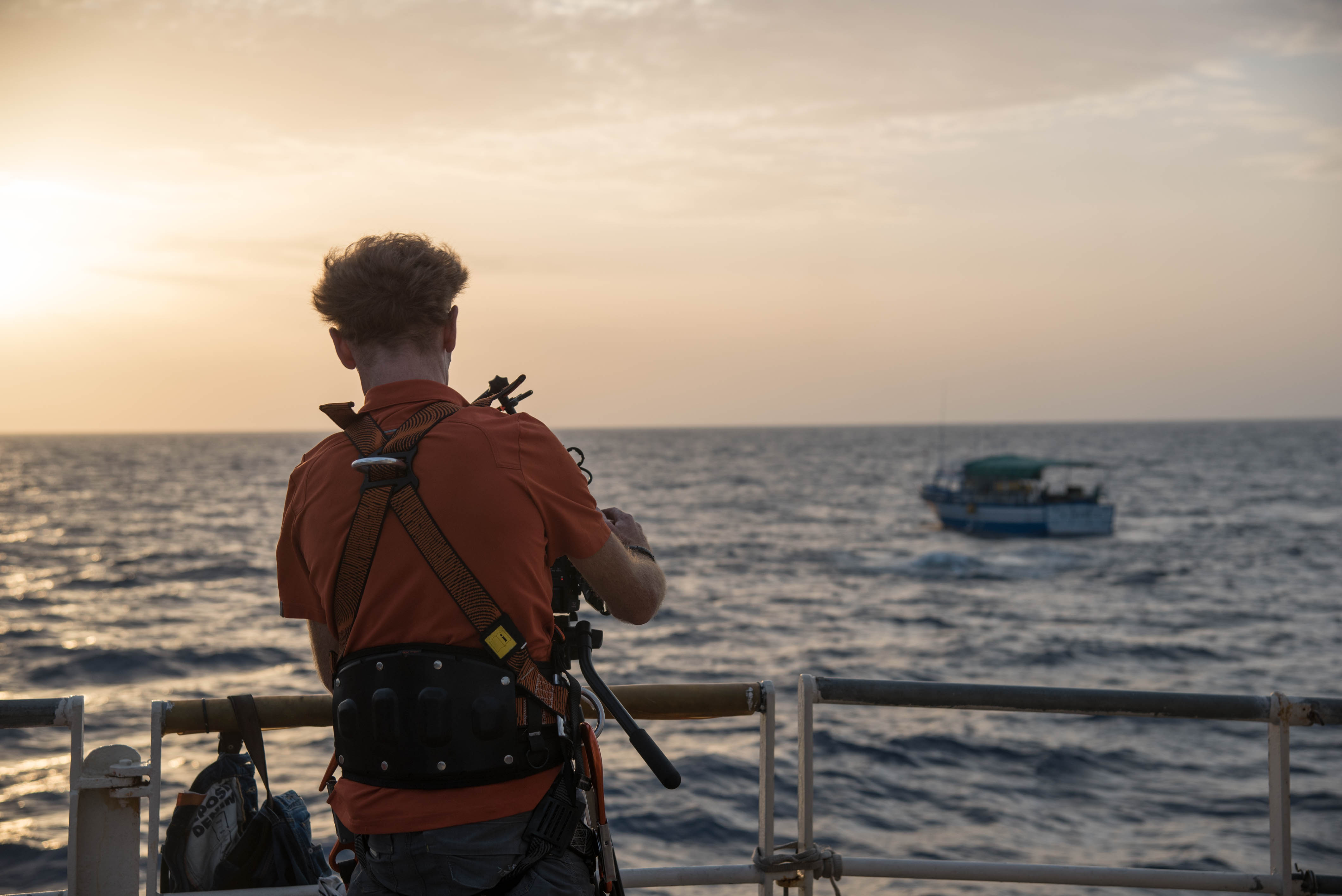One of the elements of a powerful short film is its ability to produce a strong emotional impact within a constrained time frame. Within a few minutes, it must leave a lasting impression in the hearts of its viewers — the short documentary film “Lifeboat” is a masterclass in this skill.
The refugee crisis on the Mediterranean coasts is one of the most dreadful international issues of our time. Millions of people are fleeing collapsing states in search of a better life, mounting shoddy vessels to cross the Mare Nostrum in spite of the high risk involved. The Mediterranean’s waters have claimed thousands of desperate souls.
The problem expands beyond the tragedy in the sea, however. Countries struggle to integrate immigrants into their societies and to quell swelling sentiments of dangerous nationalism. Of course, the issue also encompasses the strife ravaging Northern African countries, like Libya, and Middle Eastern states, like Syria. To make a documentary that clocks in at about 40 minutes about such a sprawling topic is a Herculean task. Thus, director Skye Fitzgerald, in his Academy Award-nominated documentary “Lifeboat,” has chosen to focus on a few specific moments that did not necessarily make national headlines but that shed light on the overall crisis.
“Lifeboat” focuses on the efforts of volunteers Jon Castle and his team in the German non-profit SeaWatch, who patrol the Mediterranean in search of migrants in need of aid. It documents how they come across an inflatable raft overloaded with refugees and rescue them. The tension is high, especially as the refugees, weak after days out at sea under the sun, jump overboard to try to reach the main boat before they have received life vests from the volunteers helping them on smaller boats.
The viewer gets an intimate view of the rescue mission as the volunteers distribute life vests and bring each refugee on board one by one. After they board the boat, the refugees are shown as individuals. Fitzgerald conducts interviews of the rescued, asking them why they left. The refugees narrate harrowing stories of rape, torture and imprisonment in Libya. Their faces have a pained expression, yet they coolly recollect their past, radiating exhaustion along with stoic perseverance. Many repeat the phrase, “c’etait pas facile,” meaning “it wasn’t easy” in French, as they reflect on the difficulties of attempting to cross the sea on the inflatable raft. One of the most striking and moving moments in these interviews is when a woman, upon being asked if she can swim shakes her head and says, “No.” It is clear from her expression that she has spent the last few days or weeks in violent fear. The interviewer repeats the question, and once more she answers, “No,” her facial expression conveying intense emotion.
This is the film’s best element. It forces you to face the human lives at stake in this crisis and come face to face with the people who are suffering. The camera grasps the layers of pain and determination sketched across the faces of these survivors, who nurse their own pain as they grieve those who were left behind or who were lost. Jon Castle, the captain of the SeaWatch boat, states that in his experience, when one gets closer to a problem and starts seeing the individuals dealing with it, empathy is inevitable: “Then, you have to start dealing with them as people. Then your heart starts operating more than your head. And your heart tells the truth when we listen to it.”
That is one of the film’s core messages: that of thinking with your heart, and of letting yourself be driven by deep empathy towards your fellow men and women. As Jon Castle says in the movie, “You know, rationality is wildly overplayed,” so the film urges the reader to remember the fact that these refugees, whose lives and destinies are dispassionately scrutinized and debated, whose futures are too often reduced to logistical planning, are humans, suffering right this moment, in need of swift and effective action.
“Lifeboat” is a must-see. It delves into what is most important in these global crises, yet what is also most often ignored: the individual human stories.
Contact Juan Fueyo-Gomez at jfgomez ‘at’ stanford.edu.
